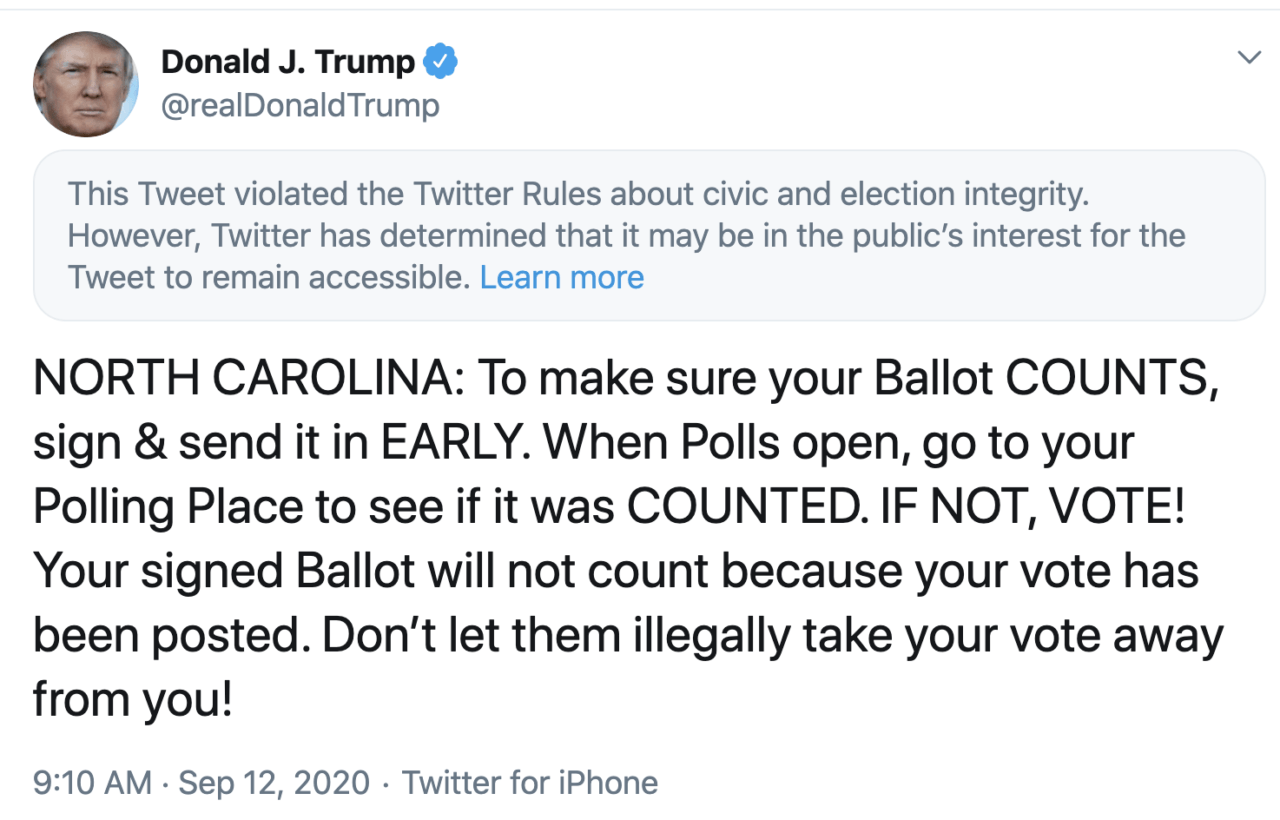This is the home stretch. If you aren’t already blanketed with political ads, you most likely live in a state that’s already locked up. But for millions of the rest of us, it’s an avalanche of ads. And especially online, many of those ads don’t come within shouting distance of the truth. And if online is your dominate source of information, watch out. Bad info is everywhere.
Earlier this year PBS News Hour conducted a survey asking, “What is the biggest threat to keeping our elections safe and accurate?” While this poll was done before the recent post office problems, it is still surprising to see “misleading information” ahead of voter fraud/suppression and foreign interference. The poll found:
35 percent of U.S. adults say misleading information is the biggest threat to keeping the nation’s elections safe and accurate. That sentiment was held by 39 percent of independent voters, followed by 31 percent of Republicans and 27 percent of Democrats.
For evidence that misinformation is effective look no further than the message, the Trump campaign is spreading to Latinos, specifically in Miami, Florida. The Miami Herald writes:
Through Equipo Trump and the Latinos for Trump coalition, the Trump campaign is pushing out ads that seek to paint Democrats as unfamiliar with Latinos and cast Biden as a far-left socialist.
Unfortunately, that message seems to be striking a chord, especially with Cuban Americans who associate socialism with Fidel Castro. In reality, Biden isn’t a socialist, but many people don’t bother cross-checking any of the messages they see in political ads or on outlets like Fox News. And socialism isn’t the only false message being spread. Today Politico wrote:
The sheer volume of conspiracy theories — including QAnon — and deceptive claims is already playing a role in stunting Biden’s growth with Latino voters, who make up about 17 percent of the state’s electorate.
“The onslaught has had an effect,” said Eduardo Gamarra, a pollster and director of the Latino Public Opinion Forum at Florida International University.
So what can you do if you know people are spreading misinformation about candidates? The most obvious answer is to send them articles from reputable sites that show the truth. Usually, you can find statements from the candidates directly that also set the record straight. For instance, last month the Trump campaign was airing an ad that said Biden wanted to defund the police. A quick internet search of reliable news sources shows that, on multiple occasions, Biden said “I do not support defunding police.”
You can also encourage people to search places like FactCheck.org, PolitiFact, and Snopes.com.
We also have the power of social media at our hands, use that power to flag suspicious or misleading posts on social media. Just this past Saturday, Twitter flagged a tweet from Donald Trump where the president encouraged voter fraud.
 While social media can crackdown on misleading ads, the same can’t be said for TV stations. The CBS affiliate in Minnesota recently sought to answer the question: Why are misleading campaign ads allowed on TV? Jane Kirtley, University of Minnesota professor of media ethics and law told them, “Whatever those advertisements say, the station has to run them as submitted.”
While social media can crackdown on misleading ads, the same can’t be said for TV stations. The CBS affiliate in Minnesota recently sought to answer the question: Why are misleading campaign ads allowed on TV? Jane Kirtley, University of Minnesota professor of media ethics and law told them, “Whatever those advertisements say, the station has to run them as submitted.”The Federal Communications Commission requires broadcasters to air political ads from federal candidates. Those ads cannot be edited or altered. According to Kirtley, the FCC has ruled that even graphic or false political advertising from a candidate cannot be censored.
So for the next 50 days, we will be subjected to these uncensored ads, but use your power and knowledge to try to educate those around you. Organizations like The News Literacy Project are also trying to do their part.
We all need to critically examine the information we read & share.
Not sure of the facts in a piece or the source's credibility? – Don't share it.
– Take a pause.
– Look at other sources.
– Step out of your filter bubble. https://t.co/vMwJiNdW9N#Election2020 pic.twitter.com/dP9g332v3D— The News Literacy Project (@NewsLitProject) September 12, 2020
Watch more above from CBS This Morning about how groups are fighting misinformation.


